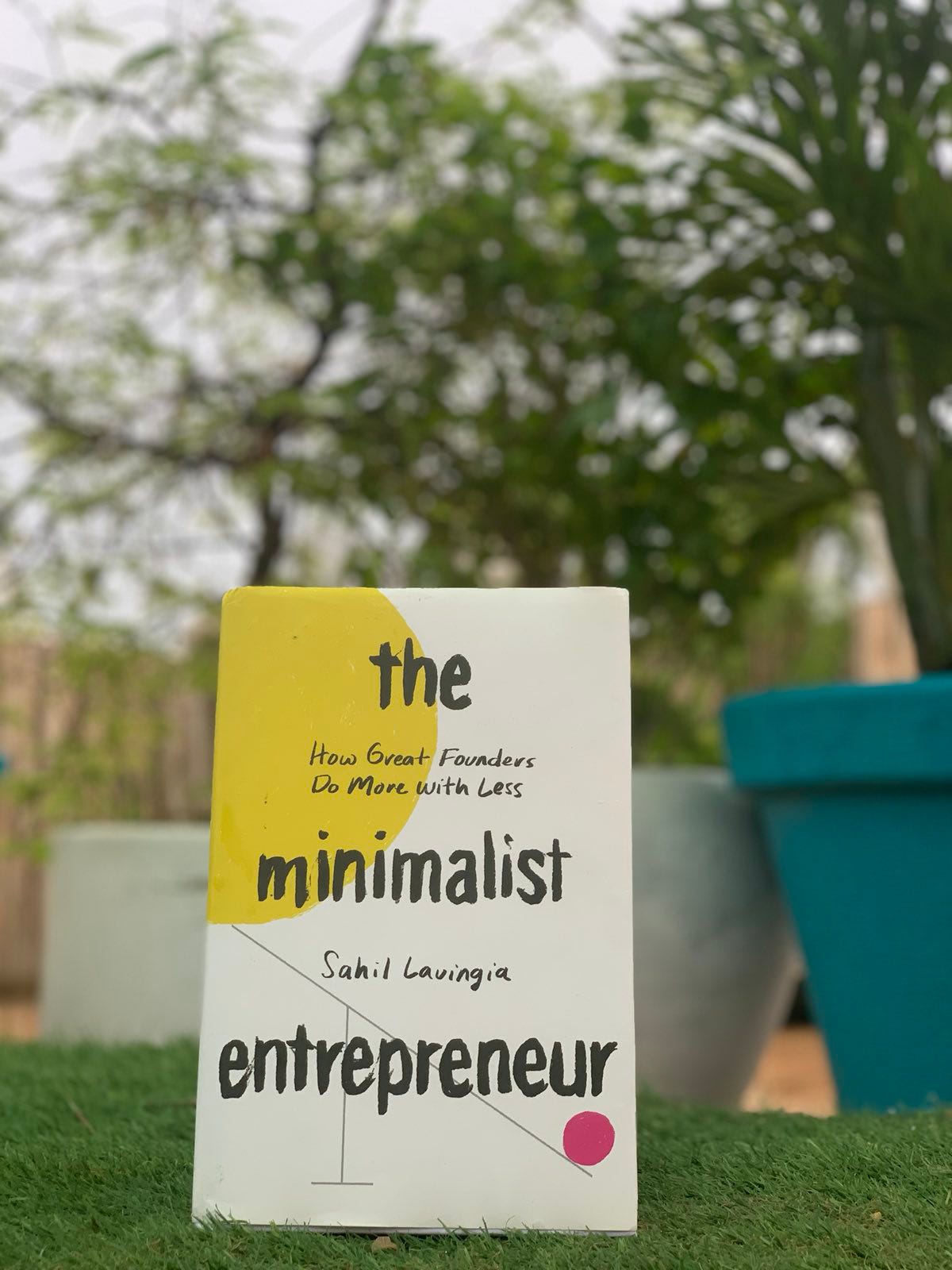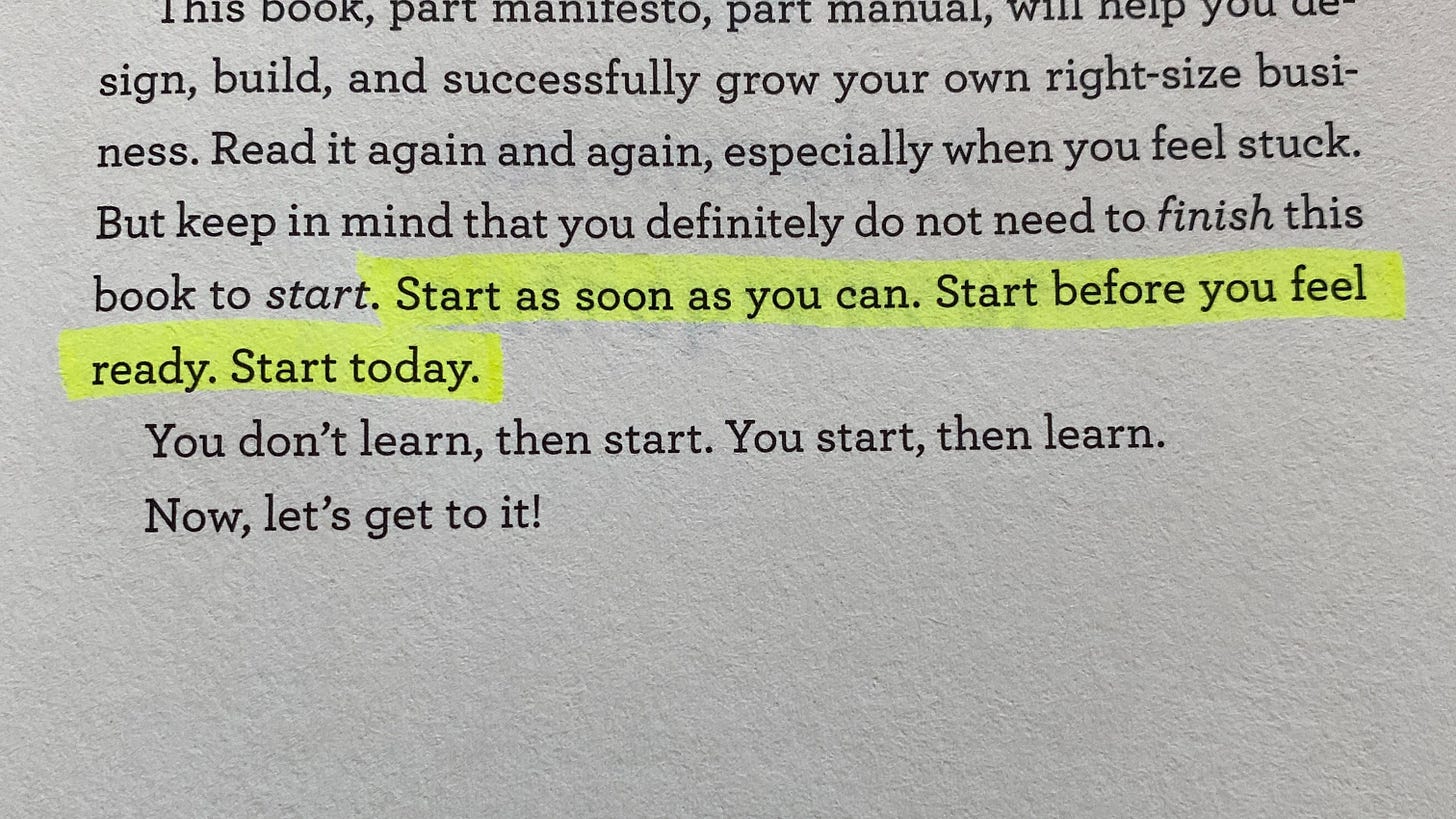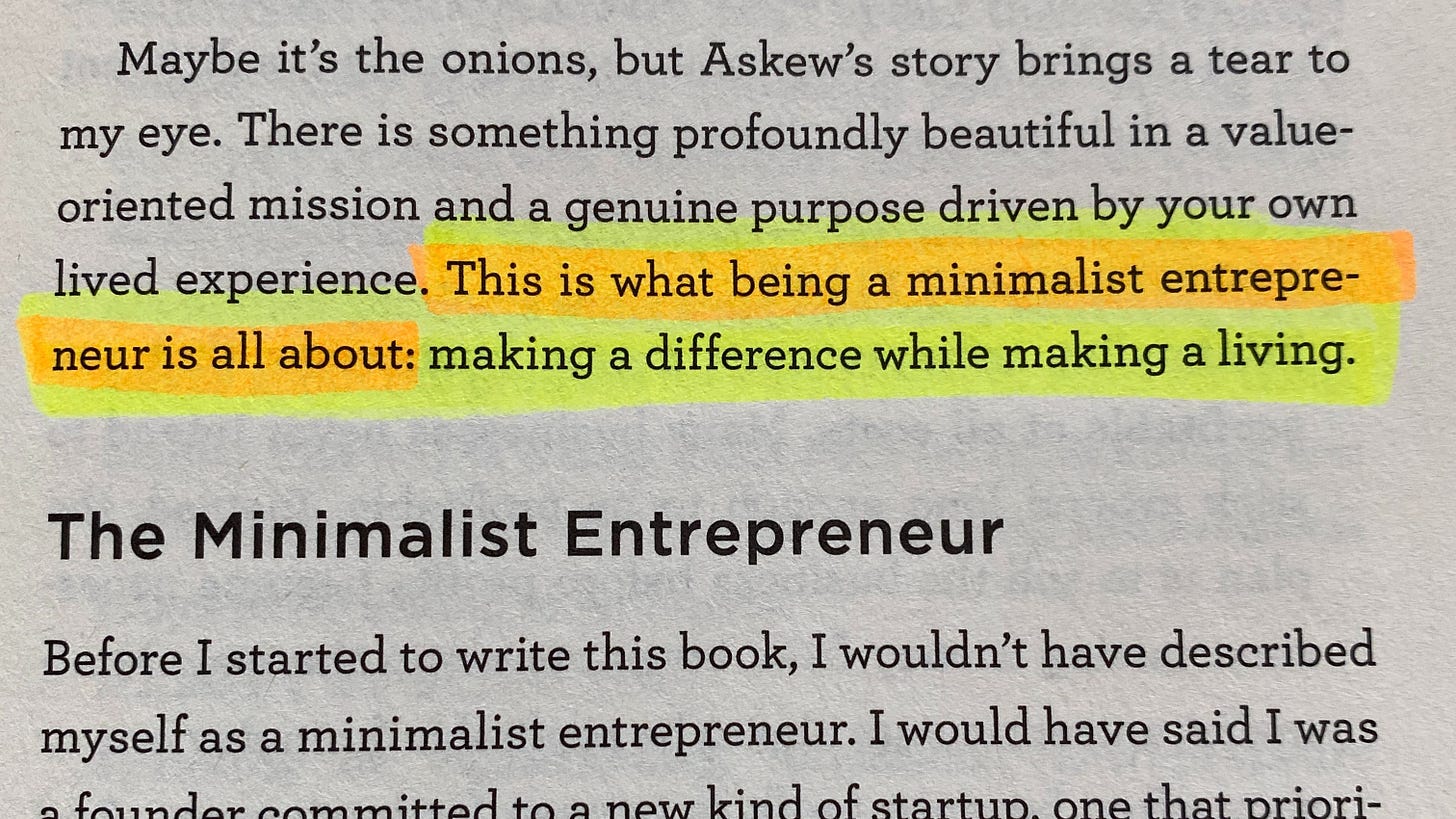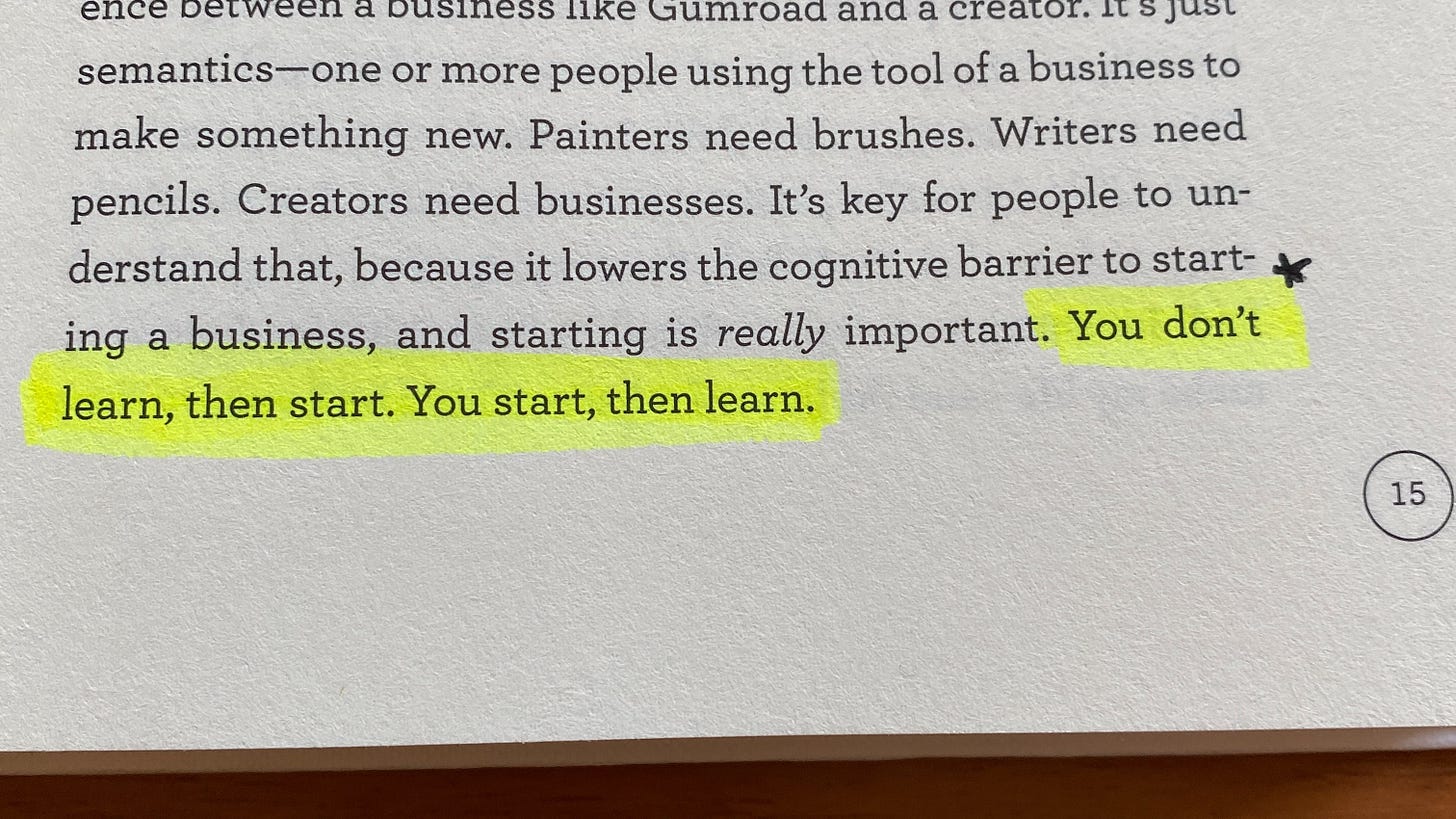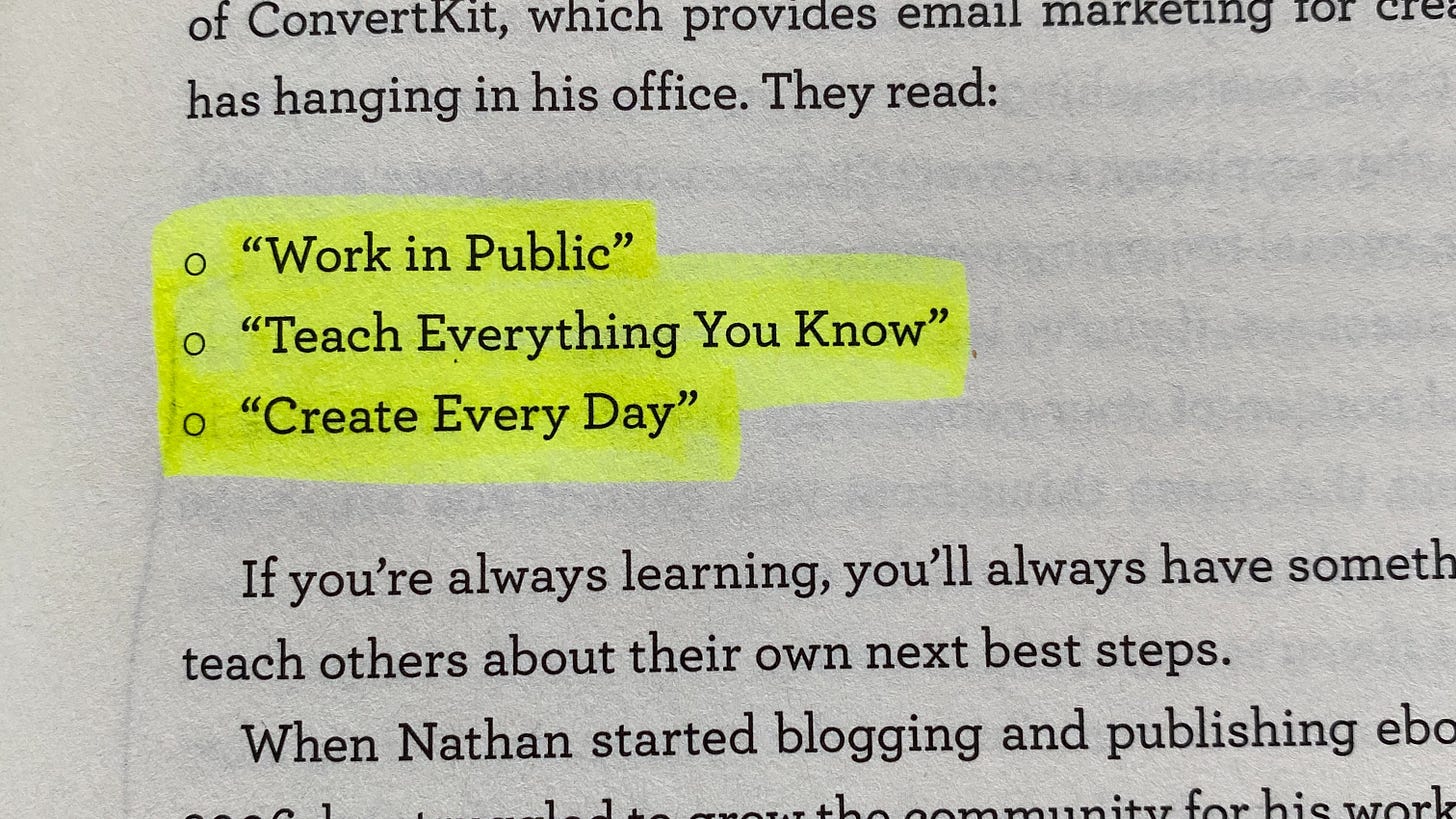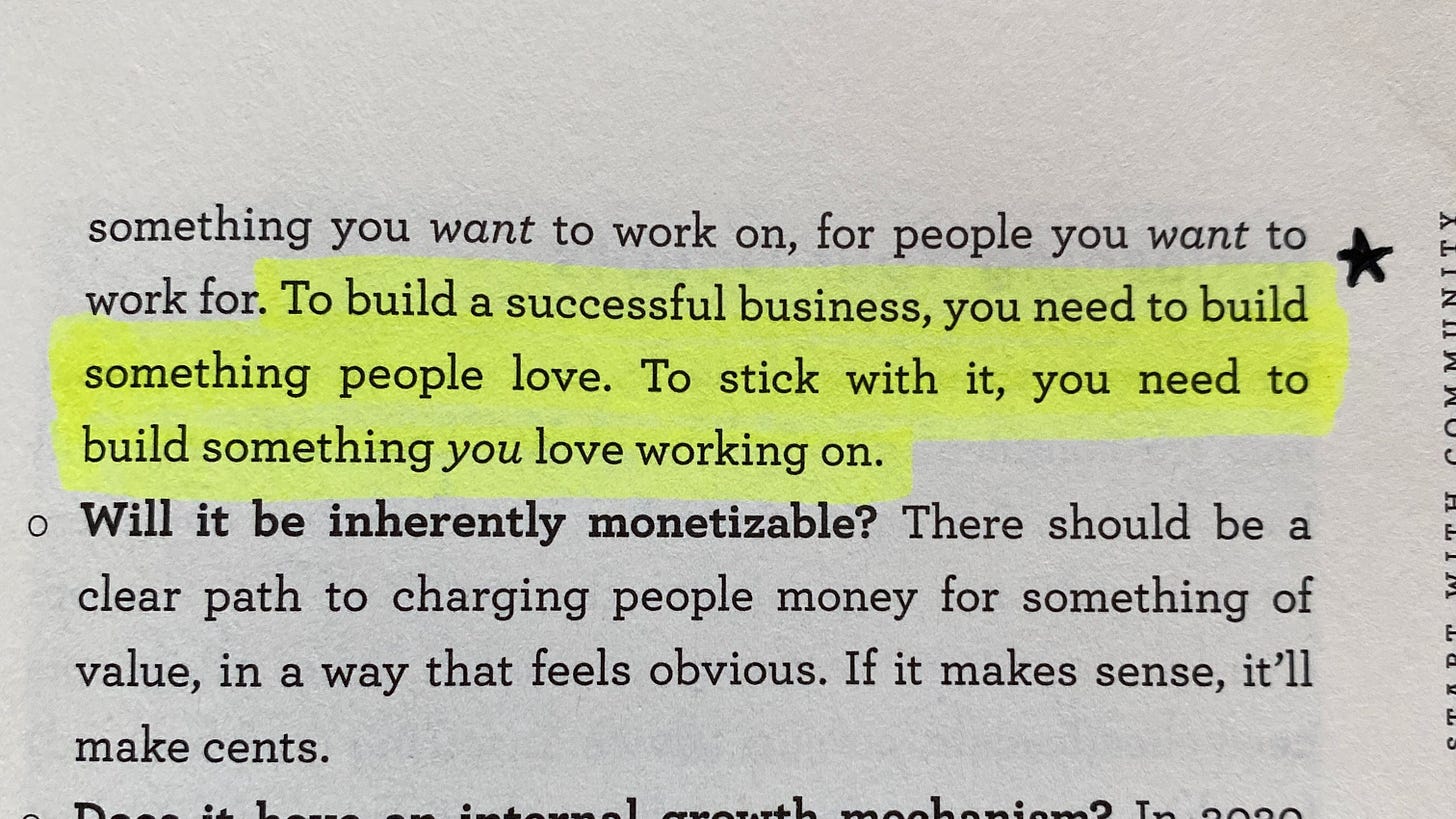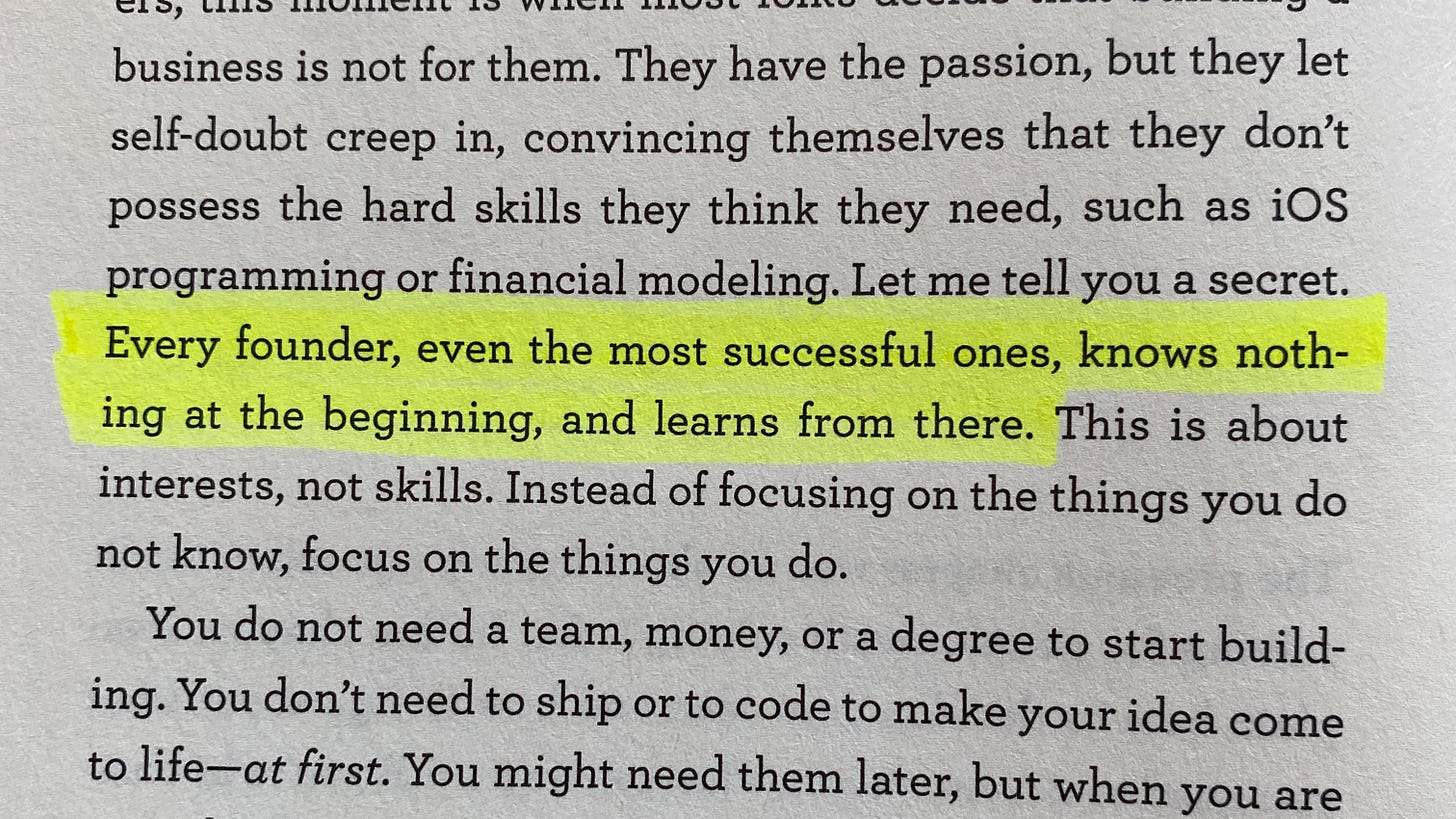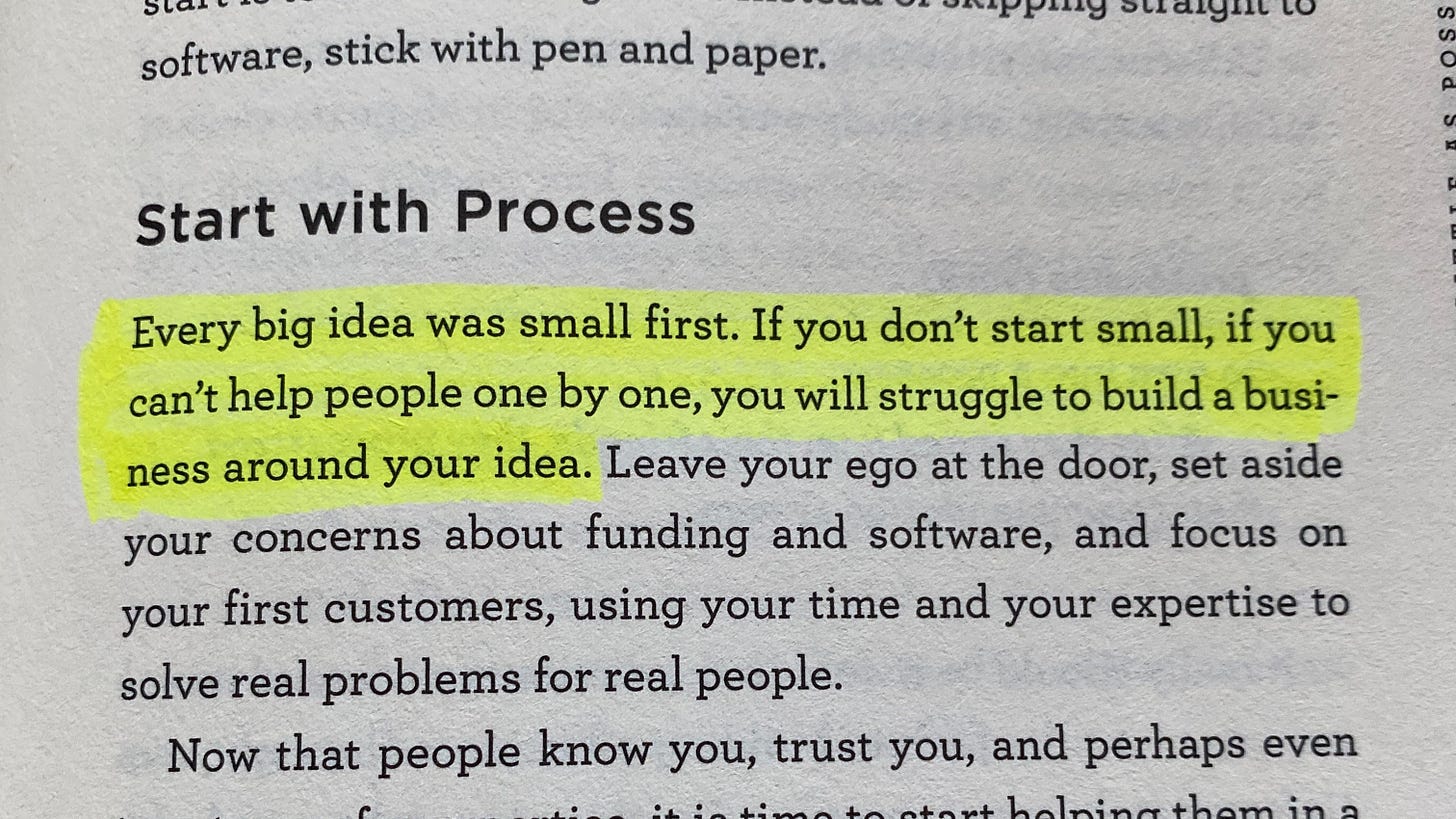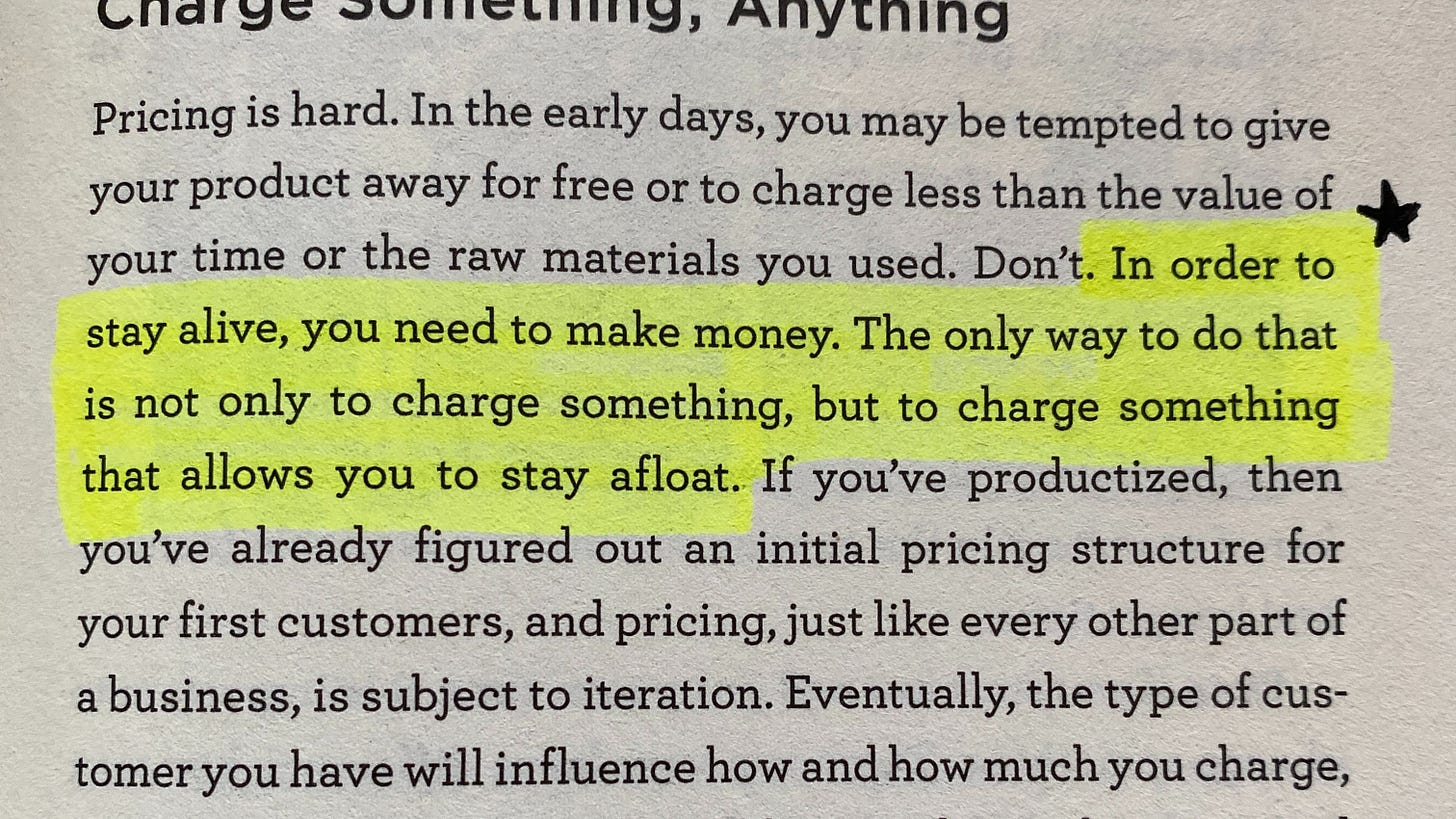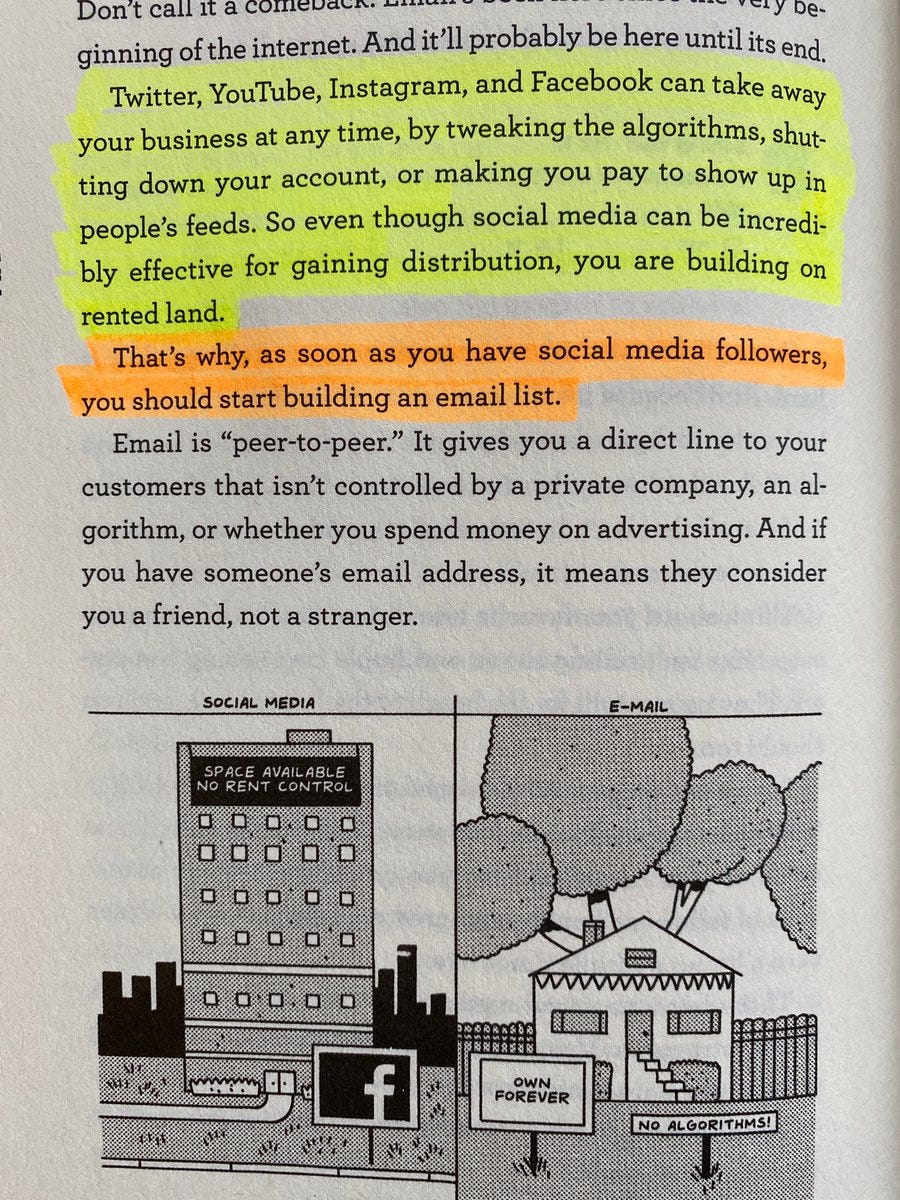The minimalist entrepreneur book notes
The most important thing is to get started – start, then learn, don’t learn, then start in edition 34th
"The minimalist entrepreneur" by Sahil Lavingia. Actionable notes and link to the FREE course by Sahil himself (in the last section)
Minimalist entrepreneurs create sustainable businesses that are profitable from the very beginning instead of prioritizing “shareholder value” or unsustainable growth. But before you become an entrepreneur, become a creator – start creating things, then learn the business.
Steps to becoming a minimalist entrepreneur/building a minimalist business:
Profitability first – create companies that are profitable from the start
Start with the community – learn from markets/communities before building. Pick communities you care about and are large/well-off enough to sustain a living but small enough to deter large competitors.
Build as little as possible – build only what you need to and automate or outsource the rest. Make sure you can test your idea on a small scale with little investment. At first, go manual (i.e., avoid “systems”/”processes”) and do one thing well.
“The world will tell you to go big or go home, but I say go small initially. And the smallest you could possibly start is to build nothing at all. Instead of skipping straight to software, stick with pen and paper”
Productize your process – After proving your process solves the problem, start automating the essential and turn it into a product that you can sell. Ship early and often – take feedback and iterate frequently.
Sell to your first hundred customers – educate instead of convincing people – use selling to learn more about people’s problems. Decide on pricing – don’t give your product away for free (it’s important to know if people want to pay for it/whether it can sustain a living)
Sell to people you know, like family & friends. Sell to your community – contact people one-on-one and ask for their honest feedback. Sell to strangers using cold outreach, i.e., emails, calls, knocking on doors. Launch to celebrate – only after getting your first 100 customers.
Market by being you – people care about other people – share your stories People go from strangers to customers by first engaging with content -> following you ->, researching your offer, -> purchasing.
“Building a business is a lesson in fast feedback loops and iteration. Imagine if you were on a boat searching for treasure but could only ping your radar once a year. Then once a month. Then, every day. The boat is your business, and the treasure is product-market fit. “
Grow yourself and your business mindfully – watch out for these mistakes. Don’t run out of money – always be profitable, stay focused on what your customers want, and raise money from your community if needed.
Don’t run out of energy – overcommunicate with your cofounder and avoid thinking you always need to do more, earn more, or grow more.Build the house you want to live in – set how, when, and where you work based on your values instead of conventional wisdom. Define your values early and often – they codify what you believe and supersede you, and allow you to scale.
Tell the world who you are and what your values are to attract the right people and repel the wrong ones **Hiring looks a lot like firing yourself **- look to hire people who are better than you from the beginning.
Want to share the book summary over Twitter/Linkedin, here’s the link to the thread
The most important thing is to get started – start, then learn, don’t learn, then start.
Snippets from Alex's tweet thread
The Minimalist Entrepreneur Course
Support my newsletter
If you find my content helpful, here’s how you can support it:
Forward it to a friend and recommend them to subscribe
Share the edition on your social media, friends, and family 👇🏽




